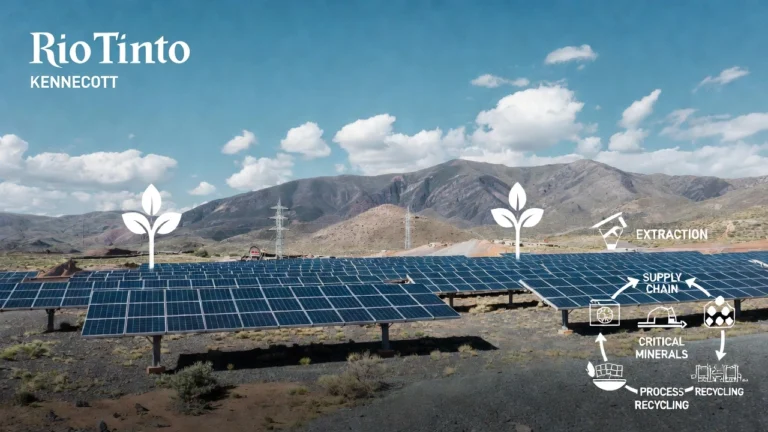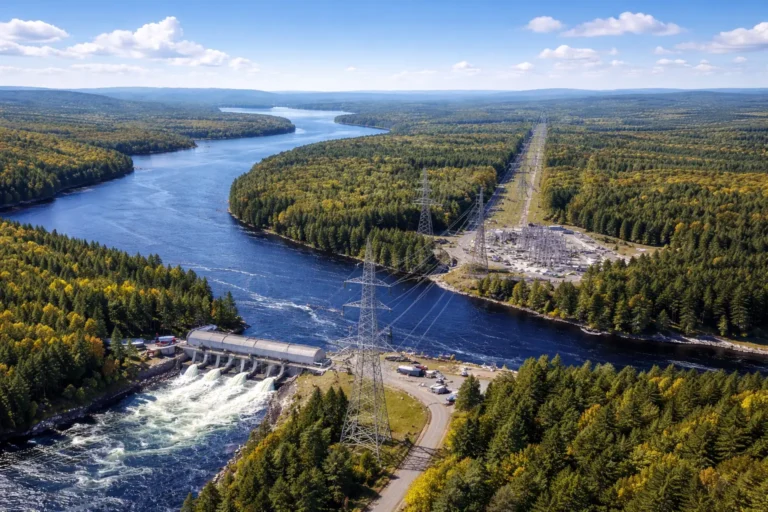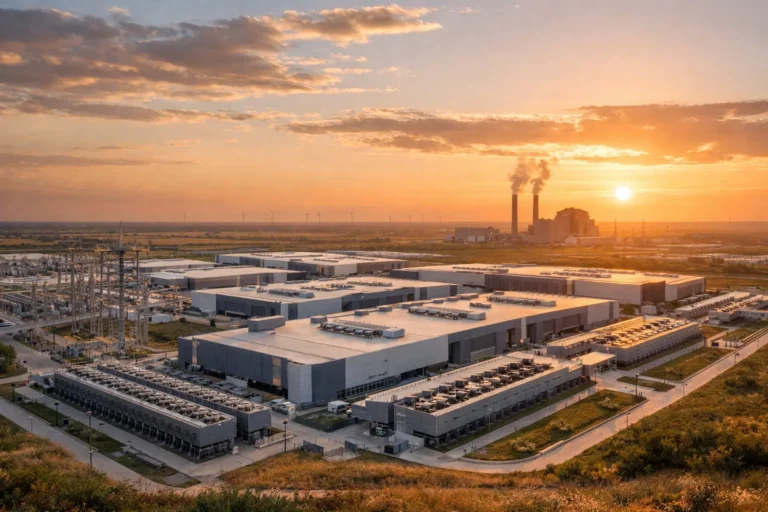
Transition Industries Awards FEED Contract to Siemens Energy and Techint E&C for 210 MW Electrolyzer at Pacifico Mexinol Project
Transition Industries LLC, a U.S.-based developer specializing in world-scale, net-zero carbon emissions methanol and hydrogen facilities, has officially awarded Siemens Energy and Techint Engineering & Construction (Techint E&C) a Front-End Engineering Design (FEED) contract for a groundbreaking 210 MW Elyzer P-300 electrolyzer facility. This facility will be a key component of the company’s Pacifico Mexinol Project, located in the Mexican state of Sinaloa. The initiative is set to become one of the largest ultra-low carbon methanol projects in the world and a benchmark for large-scale hydrogen integration in chemical production.
A Defining Step in the Pacifico Mexinol Project
The FEED contract represents a major milestone for Transition Industries as it advances toward the realization of its Pacifico Mexinol vision, a 6,130 metric ton per day ultra-low carbon methanol project. Once operational in 2029, the facility is expected to become the largest standalone ultra-low carbon chemical production site worldwide, delivering both green hydrogen and green methanol at an unprecedented scale.
As part of the FEED Agreement, Siemens Energy and Techint E&C will initially deliver a binding not-to-exceed Lump Sum Firm Price. This phase will then transition into a final binding Lump Sum Turnkey Firm Price for the Engineering, Procurement, and Construction (EPC) of the electrolyzer facility. This structured approach ensures both cost certainty and a clear pathway toward execution, de-risking a project of this scale.
Green Hydrogen at the Heart of the Facility
The electrolyzer plant, built around Siemens Energy’s advanced Elyzer P-300 technology, will produce an estimated 4,000 kilograms of green hydrogen per hour. This hydrogen will serve as a critical feedstock for the production of green methanol, while also supporting growing demand in regional and international hydrogen markets.
The facility’s design will emphasize the highest levels of safety, environmental protection, and operational efficiency, making it a reference point for future large-scale hydrogen projects across Latin America and beyond. For Transition Industries, this aligns directly with its mission to reduce carbon intensity in industrial chemical processes while creating scalable, replicable models for global deployment.
Industry Leaders Collaborating on Decarbonization
The partnership with Siemens Energy and Techint E&C demonstrates Transition Industries’ commitment to leveraging global expertise for complex, high-impact infrastructure projects.
- Siemens Energy brings decades of experience in power systems, hydrogen technology, and renewable integration. Its Elyzer P-300 electrolyzer platform is specifically engineered for industrial-scale hydrogen production, offering both efficiency and scalability. By deploying this technology in Sinaloa, Transition Industries is positioning the Pacifico Mexinol Project as a technological showcase for hydrogen-enabled decarbonization in the chemical sector.
- Techint E&C, a global engineering and construction powerhouse, will oversee the design, integration, and delivery of the hydrogen facility. With a reputation for successfully executing complex industrial megaprojects, Techint E&C provides the project with the technical depth and execution capabilities necessary to deliver on both safety and performance standards.
Executive Perspectives on the Partnership
Rommel Gallo, CEO of Transition Industries, emphasized the strategic importance of this milestone:
“This FEED contract represents more than just engineering progress — it is a defining moment in our journey to deliver world-scale sustainable chemical production. By working with Siemens Energy and Techint E&C, we are laying the foundation for the hydrogen production element of the Pacifico Mexinol project. This will not only reduce emissions significantly but also strengthen our contribution to the global energy transition.”
From Techint E&C, Alejandro Maluf, President – North America Region, highlighted the company’s enthusiasm for participating in a transformative project of this magnitude:
“At Techint E&C, we speak of our passion for doing — and Mexinol is precisely the kind of challenge that inspires us. Being part of what will become the largest green hydrogen facility in the Americas allows us to apply our technical expertise to a project that directly supports the global energy transition. This is how we build a better and more sustainable future for everyone.”
Siemens Energy also underscored its commitment to accelerating the deployment of green hydrogen solutions:
“Our Elyzer P-300 electrolyzer is designed for exactly this type of world-scale project, where efficiency, scalability, and reliability are paramount. Partnering with Transition Industries ensures that this groundbreaking facility will be equipped with the most advanced hydrogen technology available, helping set a new benchmark for low-carbon industrial production.”
Global Relevance and Market Impact
The Pacifico Mexinol Project is not just a milestone for Mexico — it is poised to reshape the global methanol and hydrogen markets. Methanol is widely used as a feedstock for chemicals, fuels, and plastics. By producing 350,000 metric tons of green methanol annually, alongside 1.8 million metric tons of blue methanol made from natural gas with carbon capture, the facility will supply critical low-carbon alternatives to industries seeking to decarbonize.
Demand for methanol is expected to surge, particularly in shipping and industrial applications where it is increasingly viewed as a viable low-carbon fuel. Simultaneously, hydrogen demand is projected to grow exponentially over the next decade, with applications spanning transportation, refining, energy storage, and heavy industry. By integrating large-scale hydrogen production into methanol manufacturing, Pacifico Mexinol is strategically positioned to serve both immediate and long-term markets.
Backed by International Institutions
Transition Industries is not pursuing this vision alone. The project is being jointly developed with the International Finance Corporation (IFC), a member of the World Bank Group. IFC’s involvement underscores both the global financial community’s confidence in the project and its strategic alignment with international development priorities such as climate action, clean energy investment, and sustainable industrial growth.
By bringing together private-sector innovation and multilateral development support, Pacifico Mexinol exemplifies the type of collaboration necessary to scale decarbonization in heavy industries.










